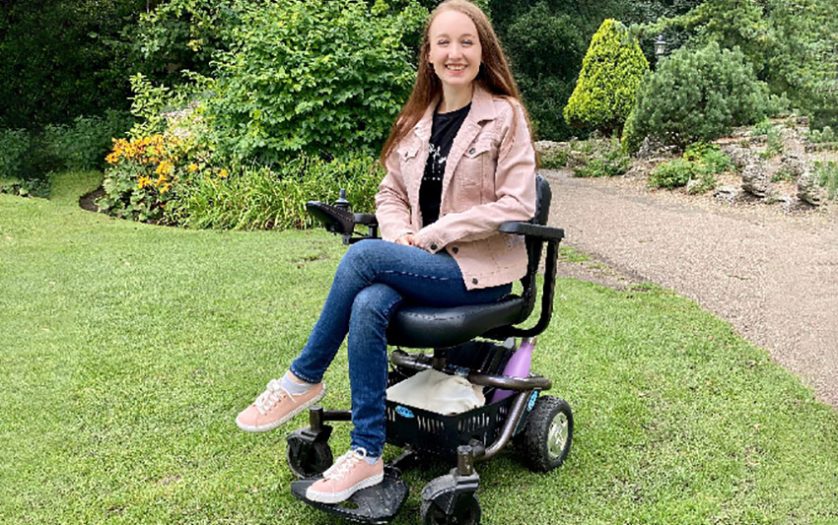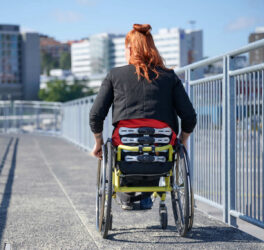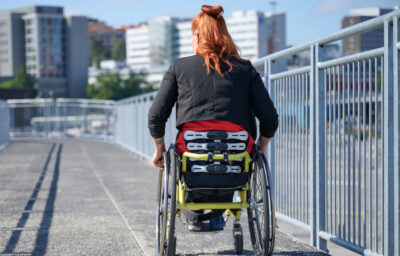
As people are encouraged to move outside post-lockdown, restaurant patios and bars are popping up all over the UK, creating accessibility issues.
Some people with disabilities, especially those who use wheelchairs, have seen reduced access to certain streets and parts of their hometown.
Accessibility campaigner Katie Pennick shared her experiences of trying to get through the streets of Soho, London, posting on Twitter, “Fun fact about me: I use a ‘teenagers’ wheelchair. It’s tiny. 23inches wide. If I’m struggling to get through these “gaps”, they are completely impassable for most wheelchair users and visually impaired people with dogs. Pavements must be kept clear enough for pedestrians.”
Pippa Stacey has experienced the same, saying, “It’s not just options of places to go, but when you’re trying to get from A to B, there are all kinds of obstacles that are blocking the way.”
Stacey, 26, was diagnosed with myalgic encephalomyelitis (ME) while she was at university and now uses both a manual and a power wheelchair.
She lives in York where cobbled streets weren’t very wheelchair friendly even before the post-lockdown obstacles of people dining on pavements.
“The other day I had no choice but [to] squeeze between two big public bins. That was the only way to get through to where I needed to go – it was embarrassing,” Stacey said.
The idea that people with disabilities should “stay home” while things re-open is frustrating and “very telling” about society’s attitude about disabilities.
“The attitude still seems to be: ‘Well, it’s just a minority of people, they should probably just stay at home for a few more weeks, it’s more important to start opening the businesses,” Stacey said, adding, “I feel like I’m not welcome in my own city.”
“Like lots of other people, I just want to go out, and I want to support the independent businesses and do my part. I think it’s easy to forget that wheelchair users, more often than not, are working professionals. They have their own lives. It’s not just a case of putting them neatly in the corner. So it’s a very frustrating situation at the minute.”
Jasmine Bamber, 21, from Manchester, said she’s been struggling to catch her bus to attend her college because of obstructed pavements.
“The usual bus route I was getting isn’t possible anymore, because the street I’d have to get across is now covered with tables and chairs for all the restaurants,” Jasmine, who uses a wheelchair, said.
For Holly Greader, 23, from Cardiff, it’s not just the people at tables she’s had problems with – it’s the long lines of people waiting to be seated as well.
“They make eye contact with me but they don’t move out the way and I don’t have a choice but to sit there and wait for somebody to move,” said Greader.
“I think the hope was that lockdown had given people an insight into what it can be like for disabled people – the isolation and everything else.
“I feel like now we’re coming out of the restrictions, we’re forgetting all these things that we’ve learned, and there is a lack of understanding.”
Alison Kerry, head of communications for disability equality charity Scope, said, “We understand that people want to get out, meet their friends and enjoy a meal or drink out with them, but this should not be at the expense of disabled people.”
Stacey said it doesn’t have to be an either-or situation. “It doesn’t have to be outdoor seating or accessibility, you can have both,” she insisted.








